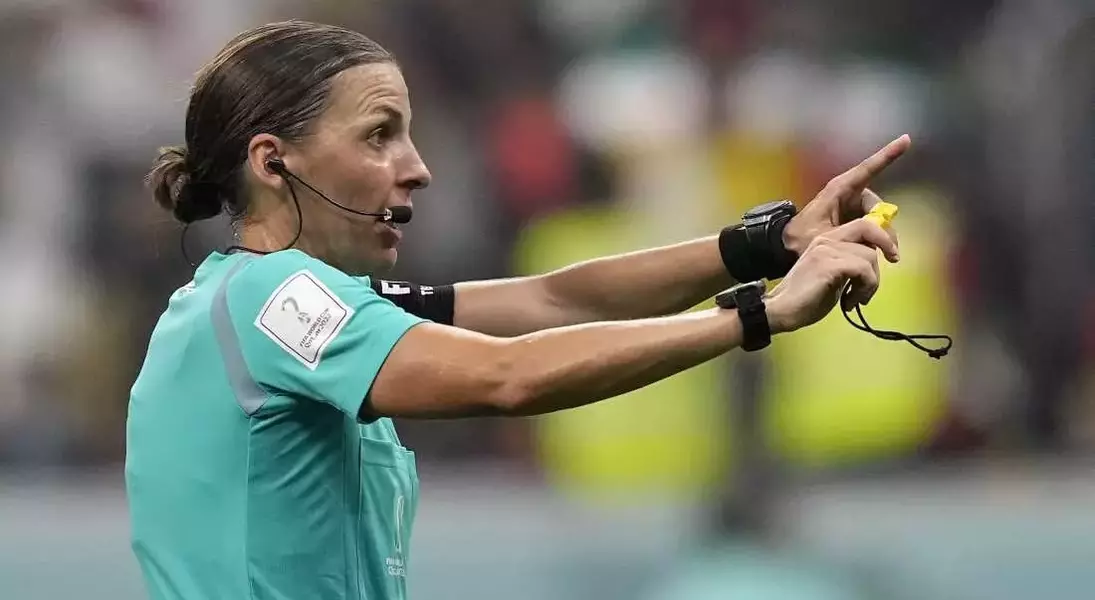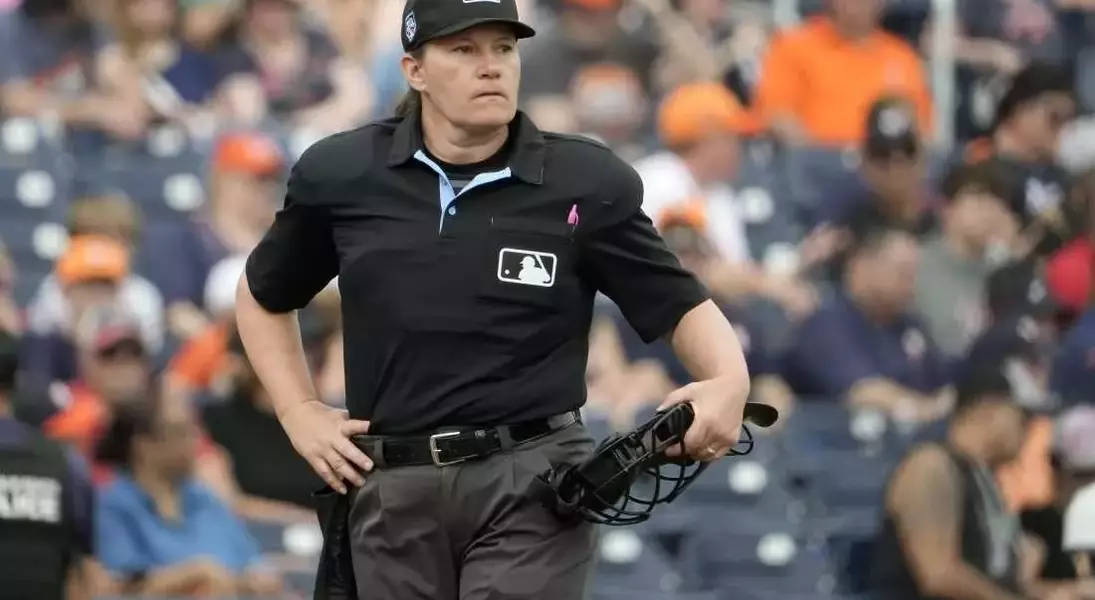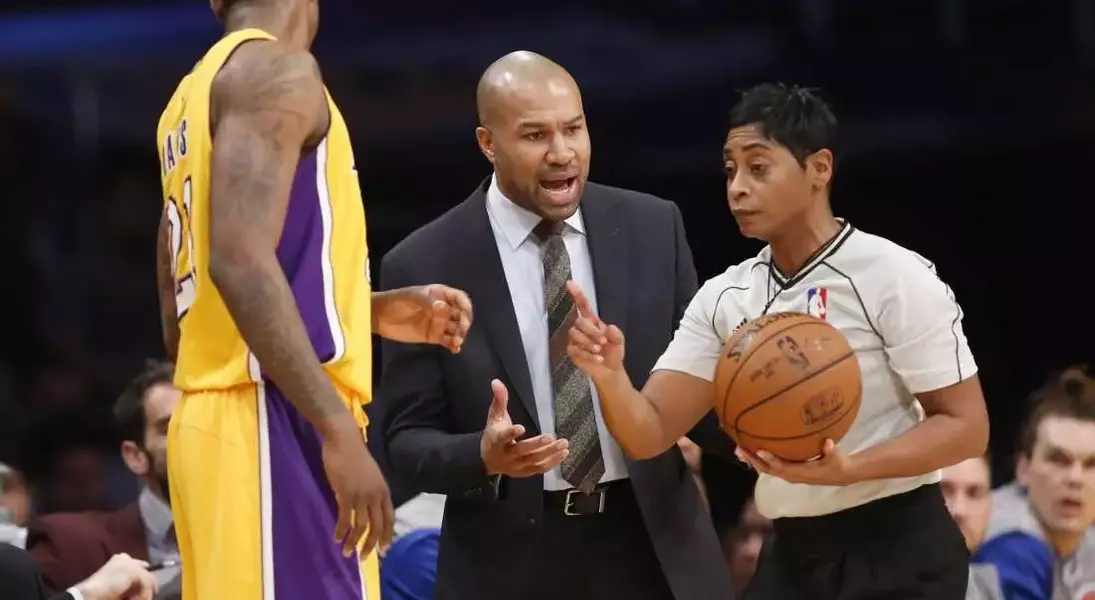




The landscape of professional sports officiating is witnessing a significant transformation as women increasingly step into roles traditionally held by men. A landmark moment is on the horizon for Major League Baseball with Jen Pawol's impending debut, symbolizing a growing movement towards inclusivity. This shift isn't isolated to baseball; it's a testament to the persistent efforts of numerous women who have, over the past decades, shattered gender barriers in major leagues like the NFL, NBA, and even international soccer's most prestigious tournaments. Their contributions are not just about individual achievements but represent a broader evolution in sports, challenging long-standing norms and fostering a more diverse and equitable environment within professional officiating across various athletic arenas.
This pioneering journey in sports officiating sees its latest chapter unfold with Jen Pawol's historic ascent to umpire in Major League Baseball. Scheduled to officiate a series between the Miami Marlins and the Atlanta Braves this weekend, the 48-year-old New Jersey native brings extensive experience, having worked spring training games for the past two years and spent time in the minor leagues since 2016. Her remarkable achievement echoes the trailblazing paths of other women who have made their mark in men's professional leagues.
In the National Football League, Shannon Eastin became the first female official in August 2012, serving as a line judge during a preseason game involving the Green Bay Packers and the then-San Diego Chargers. She further etched her name in history a month later by officiating a regular-season game between the Rams and the Lions. Her initial involvement was part of a group of replacement officials during a lockout. Following her, Sarah Thomas achieved a full-season appointment in 2015 as a line judge, and notably became the first woman to officiate a Super Bowl on February 7, 2021, when the Tampa Bay Buccaneers, led by Tom Brady, defeated the Kansas City Chiefs. Thomas also holds the distinction of being the first woman to officiate a major college football game and a bowl game.
The National Basketball Association saw similar progress when Violet Palmer and Dee Kantner were hired for the 1997 season. Palmer's debut on October 31, 1997, involved a season opener between the Vancouver Grizzlies and the Dallas Mavericks, where she worked alongside Bill Oakes and Mark Wunderlich. Kantner followed suit on November 5, 1997, officiating a game between Atlanta and Philadelphia with Ron Garretson and Ed Middleton. While Palmer retired in 2016, Kantner continues to officiate women's NCAA basketball, demonstrating enduring female presence in the sport.
Though the National Hockey League has yet to feature a female on-ice official in a regular season or Stanley Cup playoff game, significant strides have been made. In the mid-1990s, Heather McDaniel gained national recognition for officiating men's minor league games. More recently, in 2019, the NHL invited four female officials—Katie Guay, Kelly Cooke, Kirsten Welsh, and Kendall Hanley—to work prospect tournaments, marking a first for women at this level. Furthermore, a subtle but significant change occurred before the 2023-24 season, as the term 'linesmen' was updated to 'linespersons,' acknowledging the increasing number of women advancing through the American Hockey League's officiating ranks.
On the global stage of soccer, French referee Stéphanie Frappart made history at the 2022 Men's World Cup, becoming the first woman to officiate a match. She oversaw the game between Germany and Costa Rica in Al Khor, Qatar, supported by an all-female assistant referee team, including Neuza Back from Brazil and Karen Diaz Medina from Mexico. In college basketball, Melanie Davis became the first woman to officiate a Division I NCAA Men's Tournament game on March 15, 2002, during a first-round matchup between San Diego State and Illinois, building on her experience officiating men's games in the Southwestern Athletic Conference. These collective achievements highlight a powerful narrative of advancement and recognition for women's expertise in the competitive world of sports officiating.
The increasing presence of women in officiating roles across major professional sports signifies a profound cultural shift, emphasizing merit and capability over traditional gender distinctions. These pioneers are not just officiating games; they are actively shaping the future of sports, making it more inclusive and representative of society's evolving values. Their success paves the way for future generations, inspiring young women to pursue their passions in any field, regardless of historical barriers. This ongoing integration of female officials underscores a commitment to diversity and equality that strengthens the integrity and appeal of professional sports worldwide.
